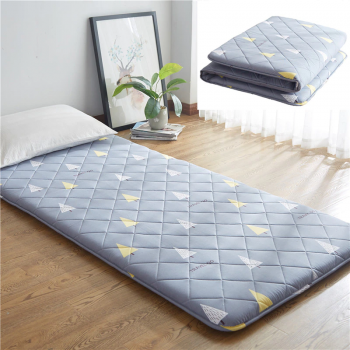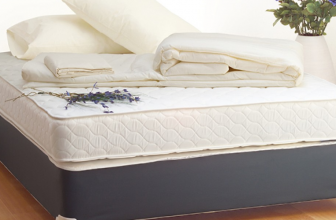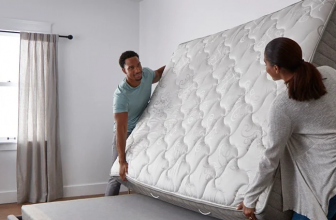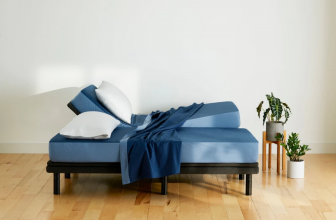Brief: How Big Is A Futon Mattress
- Futon Mattress Overview: A futon mattress is a versatile and comfortable bedding option used in many households. It’s typically made from materials like cotton, foam, or a blend, offering a balance of support and comfort.
- Thickness: The thickness of futon mattresses ranges from 4 inches to 8 inches. Thicker mattresses offer more cushioning and support.
- Types of Futons: Futons vary in style, with bi-fold, tri-fold, and loveseat being the most common. Each type offers different folding mechanisms and levels of comfort.
- Futon Frames: Frames for futon mattresses come in various materials, including metal, wood, and plywood. The choice depends on personal preference and the aesthetic of the room.
- Futon Mattress Varieties:
- Memory Foam: Contours to the body, providing support and comfort. Ideal for relieving pressure points.
- Innerspring: Offers a traditional mattress feel with springs for support.
- Lifespan: A well-maintained futon mattress typically lasts around 5-7 years, depending on usage and care.
- FAQs:
- Futon vs. Traditional Mattress: Futons are generally thinner and lighter, can be folded, and are often used for dual purposes (seating and sleeping). Traditional mattresses are thicker and used solely for sleeping.
- Comfort: Futon mattresses can be quite comfortable, especially those made with quality materials like memory foam.
- Extra Firm Support: Look for high-density foam or innerspring futon mattresses for firmer support.
- Allergy-Friendly: Many futon mattresses are hypoallergenic, making them suitable for people with allergies.
- Cleaning: Regular spot-cleaning and vacuuming keep a futon mattress clean.
- Replacement Frequency: Replace every 3-5 years for optimal comfort and support.
- Conclusion: Understanding the dimensions, types, and care requirements of a futon mattress can help you make an informed decision about incorporating one into your home for versatile and comfortable bedding solutions.
A futon mattress is a type of bed typically used in Japan and other countries throughout East Asia. It consists of a thick, rectangular piece of cloth laid on the floor or ground and covered with a sheet or duvet for comfort; it’s also known as an “on the go” bed.
The word “futon” literally means “meditation cushion.” Keep reading to learn more about this mattress and get the answer about how big a futon mattress is.
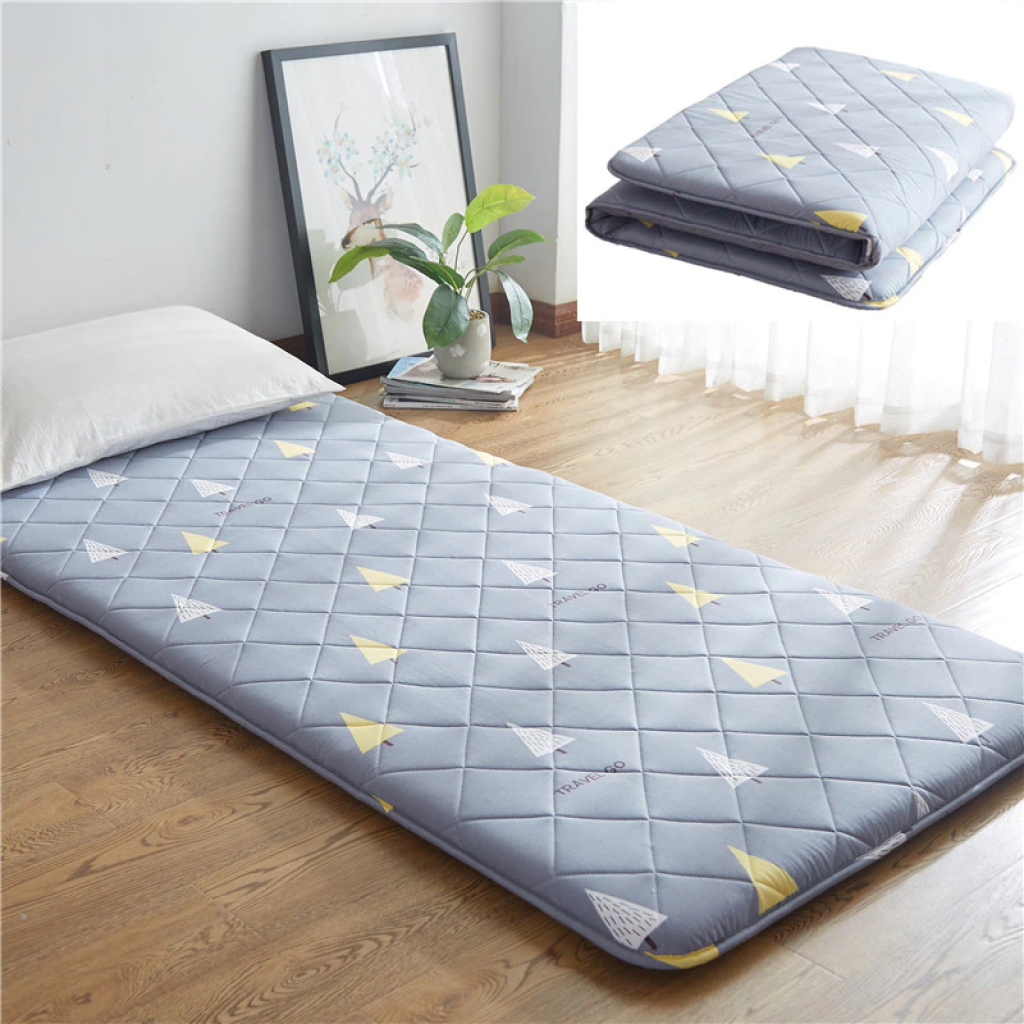
What Is A Futon Mattress?
A futon mattress is made up of two layers: one layer to sleep on (the duvet) and another layer that provides extra comfort (the cover). Some futon mattresses include a third layer – padding – to better the comfort and quality of the bed. Futon mattresses range in thickness from 4 inches to 8 inches. They can be covered in an assortment of materials, such as cotton, wool, and denim.
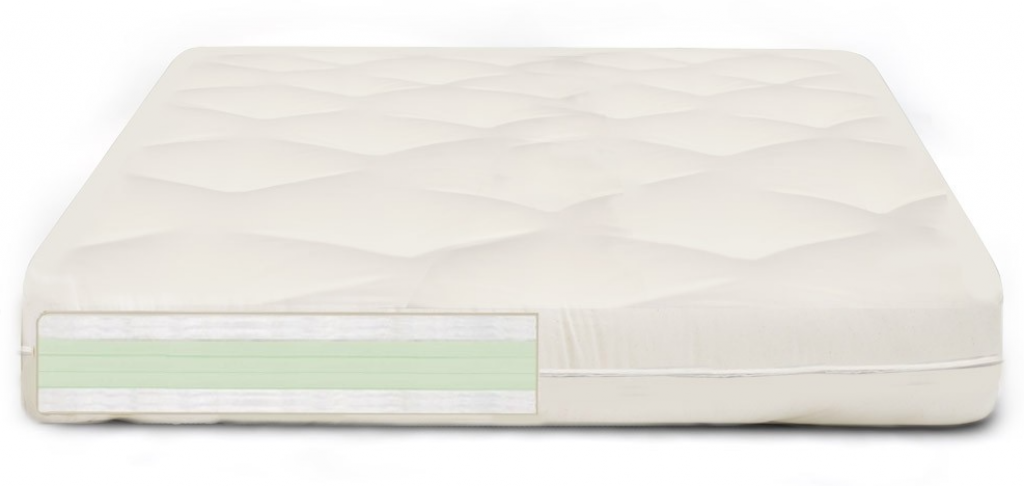
Futon mattresses are usually made from cotton or cotton blended with foam. In recent years, other materials such as polyester and memory foam have made them more comfortable. In addition, some futons come with fitted sheets already attached to the mattress cover.
Futon Mattress Dimensions
Futon mattresses are available in different sizes, with the most popular choice usually being the queen-sized futon mattress.
Below you can find the list of the most common futon mattress dimensions:
- Twin Size Futon: 39 X 75 Inches.
- Twin Xl Size Futon: 39 X 80 Inches.
- Full Size Futon: 54 X 75 Inches.
- Queen Size Futon: 60 X 80 Inches.
- King Size Futon: 76 X 80 Inches.
- California King Size Futon: 72 X 84 Inches.
Types Of Futons
Futon mattresses come in different styles, which are mainly divided into bi-fold, tri-fold, and loveseat. However, there are more types of futons available for purchase today.
Bi-fold
Bi-fold futons are what most people are familiar with. They have two sides made from one continuous piece of cloth, which are folded to create the mattress.
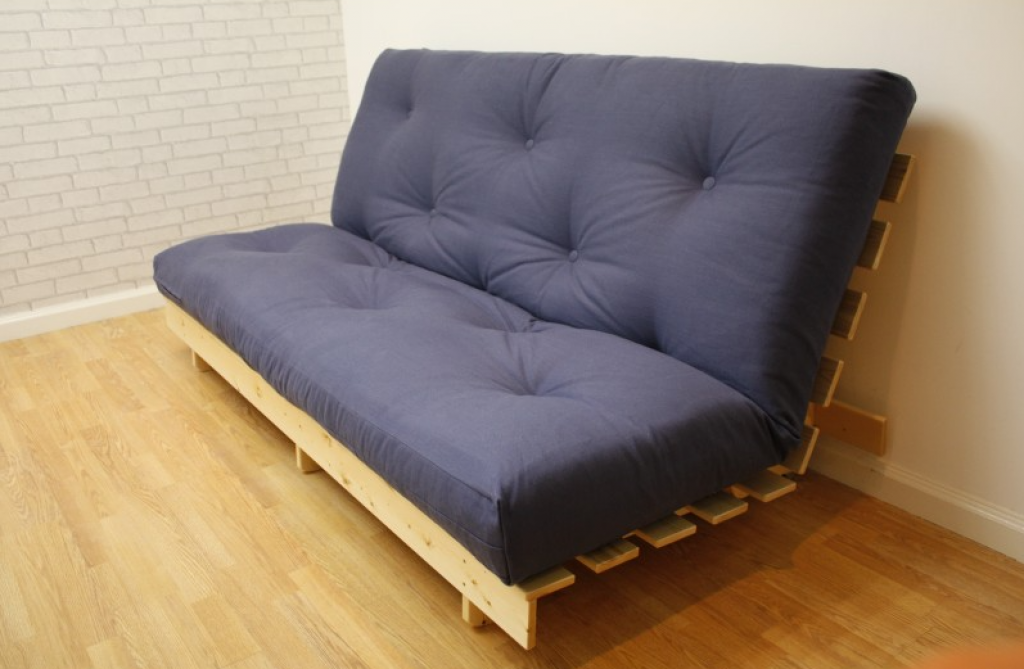
Tri-fold
Tri-fold futons have three sides made from one continuous piece of cloth, instead of just two as with bi-fold models. This allows for a lot more space on the cover for storing blankets or pillows.
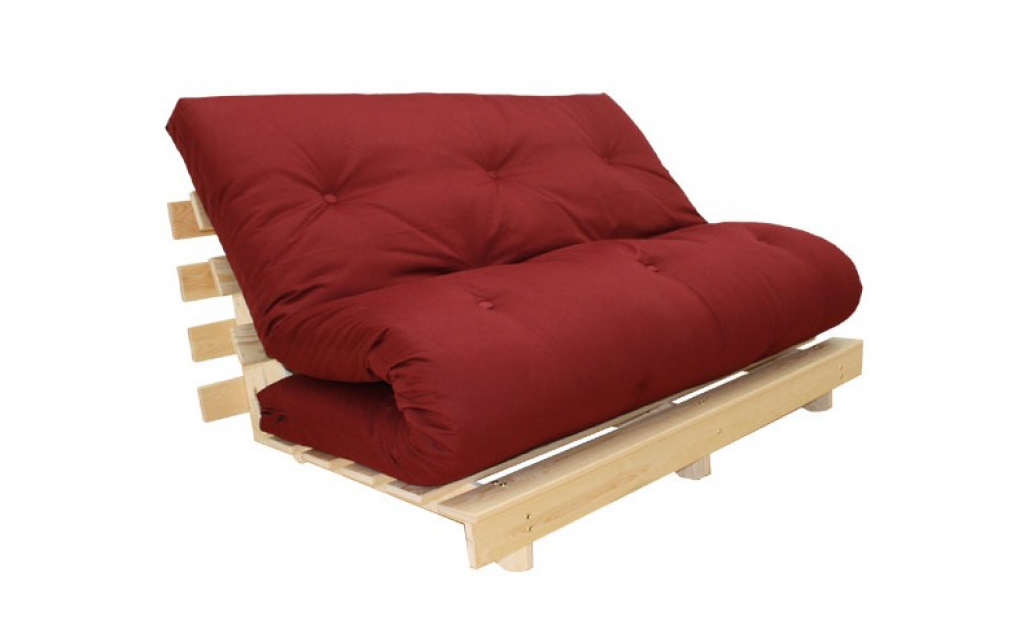
Loveseat
Loveseat futons have four sides made from one continuous piece of cloth folded over each other to make an actual seat for lazing around or watching TV together at the end of the day.
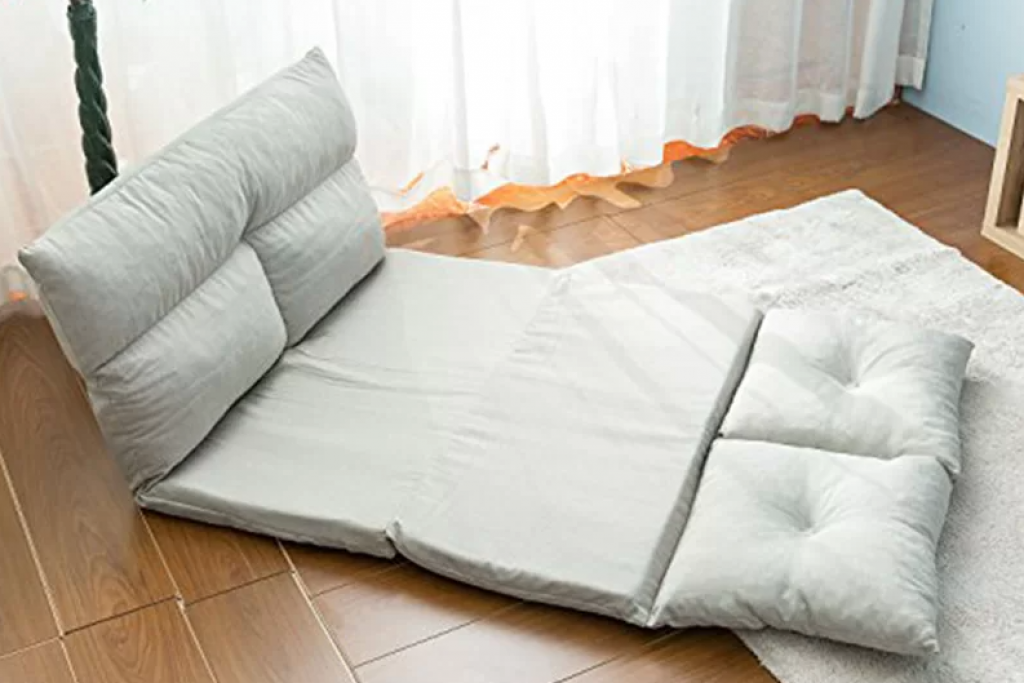
Types Of Futon Frames
Various types of futon frames are available for purchase online, depending on the buyer’s preference.
Metal
Metal futon frames are popular because they’re easy to assemble, usually requiring just a screwdriver for assembly. However, this type of frame may not be so easy to move around when it’s time for clean-up or moving to another location in the house.
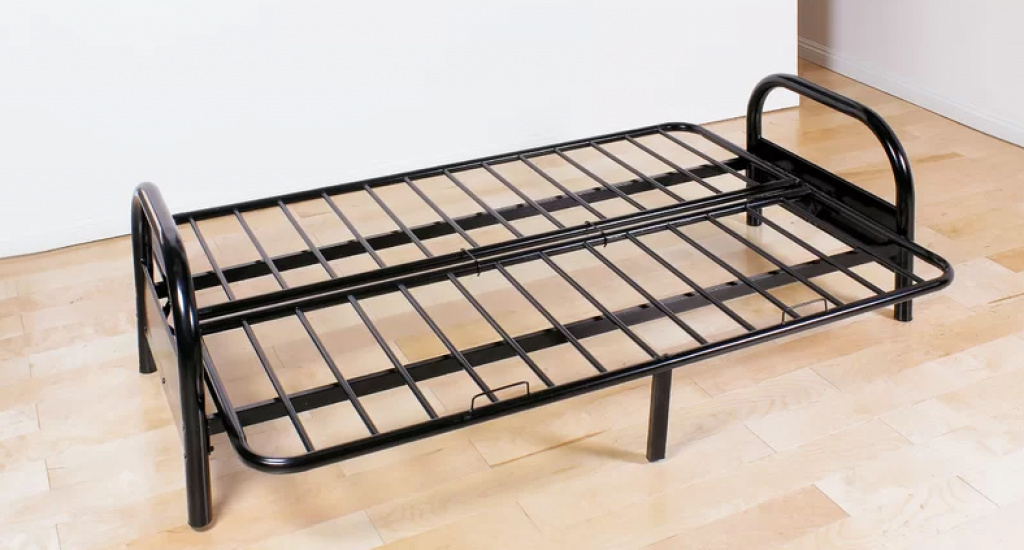
Wood
Wooden futon frames are durable and strong enough to hold up heavy body weight, but they still have an elegant look that makes them fit into any home décor.
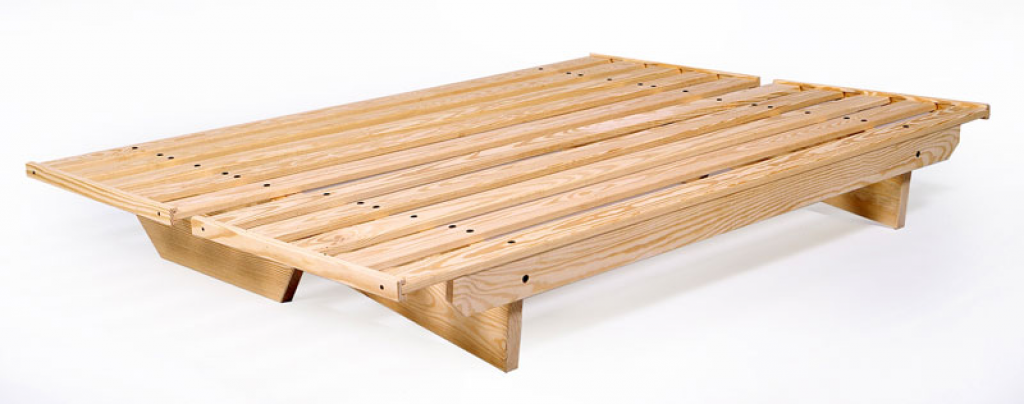
Plywood
Plywood futon frames are sturdy and have an attractive finish that mixes well with the décor of the room it is placed in. They’re also easy to assemble, making them suitable for people who don’t have much free time to spend on futon assembly.
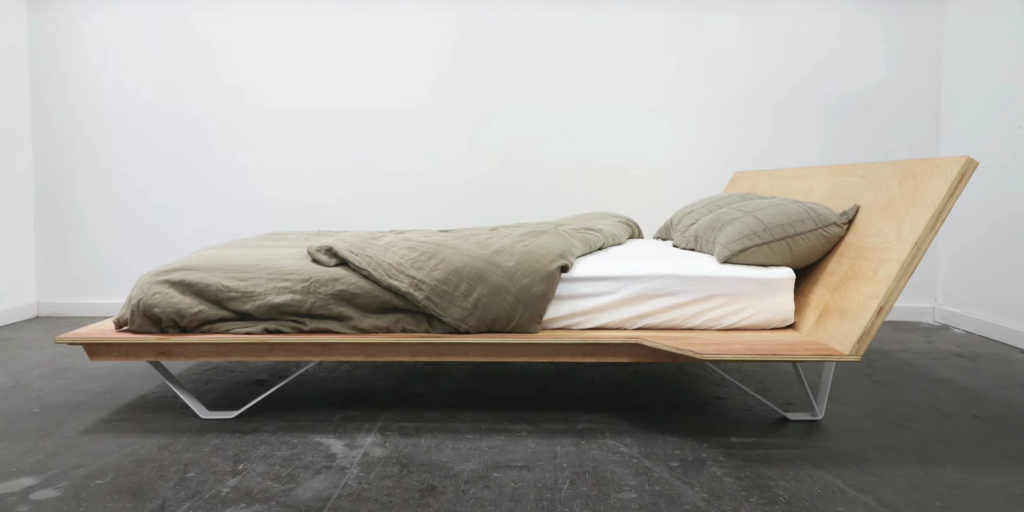
Different Types Of Futon Mattresses
You can choose from different types of futon mattresses depending on your specific needs or preferences; it’s essential to look for comfort and provide the support you need.
Memory foam mattresses are popular choices because they mold your body shape and weight contours, making them more supportive than other models on the market today. Innerspring futon mattresses are often low-cost, making them good options for those on a budget.
Memory Foam
Memory foam futon mattresses are popular because the foam absorbs and distributes body weight and pressure evenly. The memory quality of the mattress material makes it mold to your body’s shape and weight, supporting your spine and preventing pressure on your joints and bones. Memory foam is also helpful in relieving chronic pain from spinal issues such as scoliosis, osteoarthritis, backaches, etc.
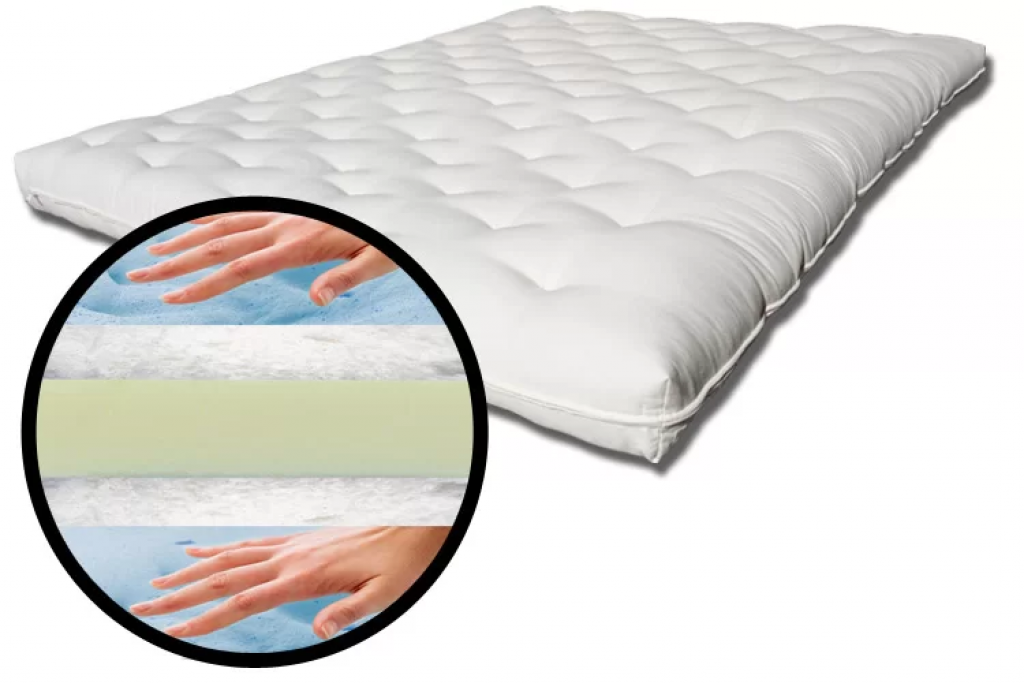
Innerspring
Innerspring futon mattresses are mainly used in the United States. This type of mattress comprises coils of steel wire that are tightly wound into foam padding. They’re durable and long-lasting, although they may be as supportive as memory foam or other types of futon mattresses.
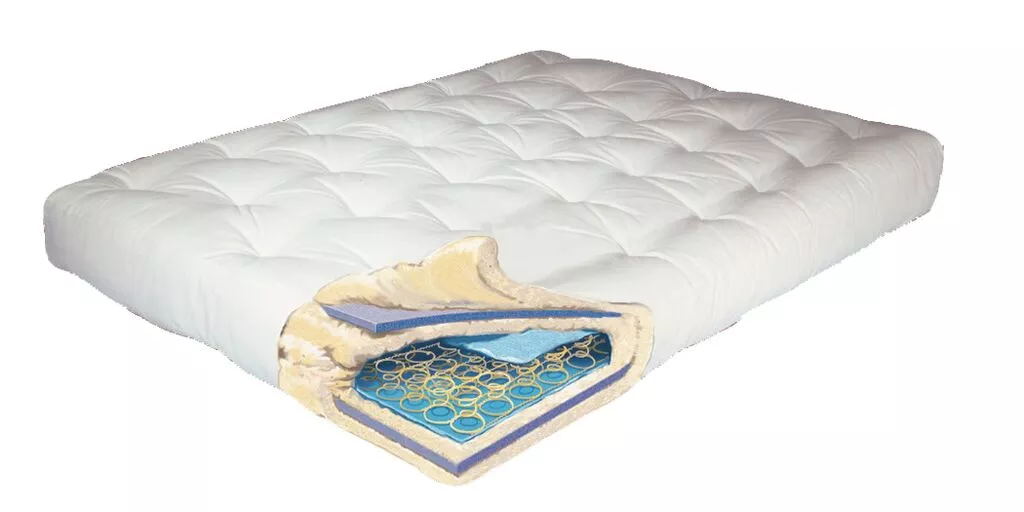
How Long Does A Futon Mattress Last?
It all depends on the way it’s used and the overall quality of the mattress. The lifespan of a futon mattress is generally long, even when it’s used daily. However, if you take good care of your futon mattress and use it regularly, you can quickly get at least five years out of it before needing to replace it.
FAQ
What is the size of a full futon mattress?
A full futon mattress is typically 54 inches wide by 75 inches long.
Are futon mattresses thinner than traditional mattresses?
Futon mattresses tend to be thinner than traditional mattresses. The average thickness of a futon mattress is 6 to 8 inches, depending on the type of material used.
Will a full futon mattress fit a full-size bed frame?
A full futon mattress will typically fit a full-size bed frame, as long as the bed frame is sized correctly.
Is a full-size futon mattress larger than a queen mattress?
A full-size futon mattress is slightly shorter than a queen mattress, measuring 54 inches in width compared to a queen mattress which measures 60 inches in width.
What is the difference between a futon mattress and a traditional mattress?
Futon mattresses are usually thinner and lighter than traditional mattresses, and they can usually be folded up for easy storage or transport. Traditional mattresses tend to be thicker and heavier, and they are not typically able to be folded.
Is a futon mattress comfortable?
Yes, a futon mattress can be comfortable when it is properly treated and maintained. It is important to regularly flip, rotate, and replace your futon mattress to ensure optimal comfort.
What type of mattress should I look for if I need extra firm support?
If you need extra firm support, look for a futon mattress that is made from high-density foam or innerspring coils. These materials provide extra firm support and can help with back pain and pressure point relief.
Are futon mattresses good for people with allergies?
Yes, futon mattresses are generally good for people with allergies. Some futon mattresses are made with hypoallergenic materials, such as memory foam and latex, which can help reduce dust mites and other allergens.
Is a futon mattress easy to keep clean?
Yes, a futon mattress is typically easy to keep clean. It is important to regularly spot-clean the mattress with a damp cloth and vacuum the surface to remove dust and debris.
How often should I replace my futon mattress?
Depending on the type of material used, a futon mattress should generally be replaced every 3 to 5 years. This will help ensure that the mattress provides optimal support and comfort over time.
What is the average cost of a futon mattress?
The average cost of a futon mattress can vary depending on the type and quality of the material used. Generally, futon mattresses cost between $100 and $500.
Can a futon mattress be used on an adjustable bed frame?
Yes, a futon mattress can be used on an adjustable bed frame. However, it is important to make sure that the mattress is compatible with the frame to ensure optimal comfort and safety.
Can I use a futon mattress with a standard box spring?
Yes, a futon mattress can be used with a standard box spring. However, a box spring is not necessary for most futon mattresses and can be used only if extra height is desired.
Do futon mattresses require a bed frame?
No, a bed frame is not required for a futon mattress. Futon mattresses can be used on the floor or on slatted platforms without a bed frame.
Where can I find reviews on the best futon mattresses?
Reviews on the best futon mattresses can be found online on websites such as Mattressive.com. Here, you will find detailed reviews on the best futon mattresses for all needs.
You may want to revisit some parts of the article

